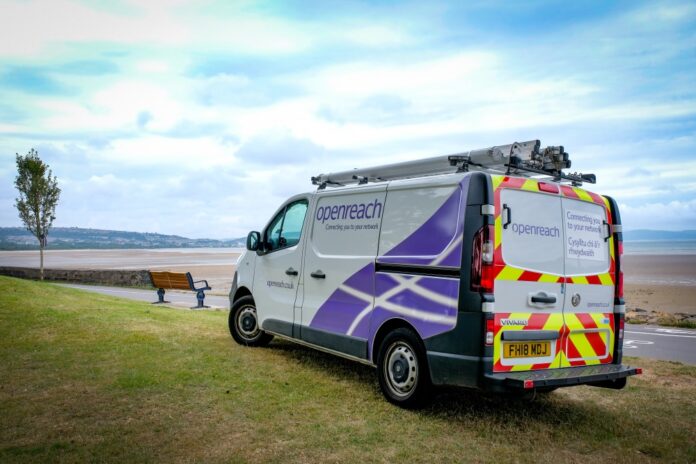CEO Selley insists curtailed investment won’t undermine its target of passing 25 million homes by 2026
According to the Financial Times, Openreach is to curtail investment in fibre build-out to cut costs and get better return on investment as UK inflation rises.
The FT reports it has seen a letter from BT, owner of Openreach, to suppliers saying it will build its fibre broadband out “narrower and deeper” and “tighten the timing of investment” to just-in-time and will not commit capital further than six months in advance.
The letter acknowledges that cancelling or postponing orders will have a financial impact on suppliers.
A multitude of woes
Earlier this month, BT’s CEO, Philip Jansen announced he was looking for an additional £500 million in savings on top of the £2.5 billion target already set for the end of 2025 at the H1 earnings call. He blamed inflation and the £200 million rise in energy bills due to soaring energy costs. He is also battling strike action and super sluggish growth.
It is also hard on the heels of Openreach announcing Equinox 2. The original Equinox offered discounts to ISPs for FTTP access with 10-year certainty to customers using Openreach’s infrastructure in return for a commitment to connect at least 90% of new lines as FTTP, instead of copper.
Hence an ISP paid a monthly rental for a 1Gbps line of £22.00 instead of £31.57, for example. CityFibre argued Equinox’s stipulation of 90% of orders for new lines being FTTP creates a barrier to competition and eroded its price advantage. It appealed against Ofcom’s approval of the scheme, but its appeal to the Competition Appeal Tribunal was thrown out.
Now Openreach is reportedly on the cusp of launching Equinox 2 to offer resellers further discounts to improve take-up of fibre-based services – both the charges for migrating customers onto the fibre and the revenue-share per customers.
it’s an ill wind…
Hence BT’s apparent slowdown in its build-out looks like good news for the altnet fibre providers such as Virgin Media O2 and CityFibre.
Openreach’s CEO, Clive Selley, told the FT that the company will concentrate on completing build-outs in areas where work is underway rather than beginning network construction told new locations, and insisted it will still hit its target of passing 25 million homes by 2026 at a cost of £12 billion. So far it has passed 9 million.
Virgin Media O2 is on a mission to pass up to 7 million new premises. CityFibre has network projects in more than 60 towns and cities, and has said it expects to have “substantially completed” its build-out by 2025 which is expected to pass up to 8 million homes, 800,000 businesses, 400,000 public sector sites and 250,000 5G access points.



